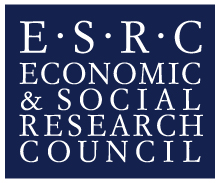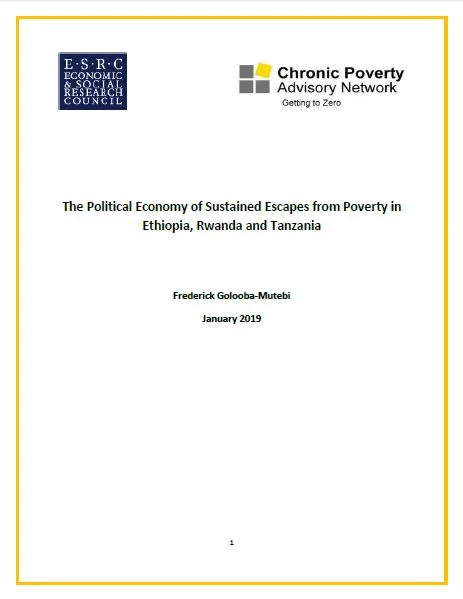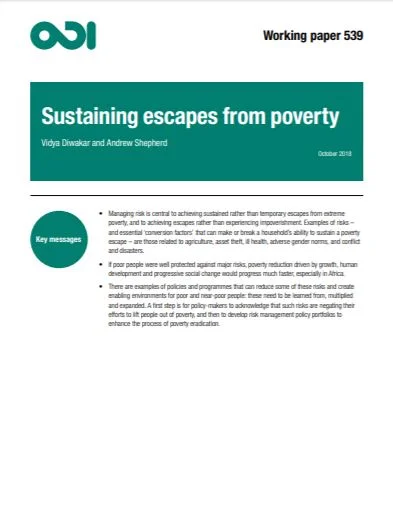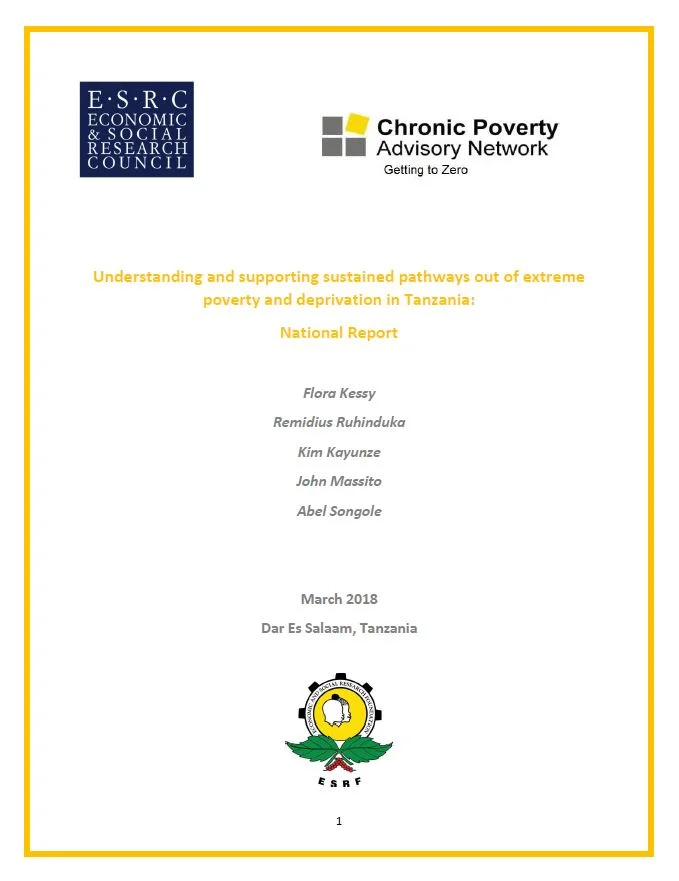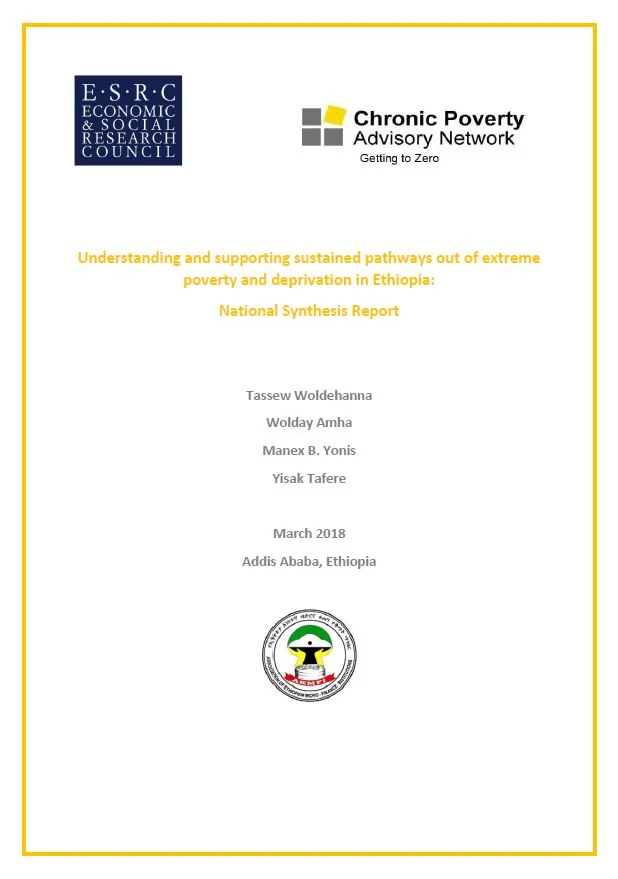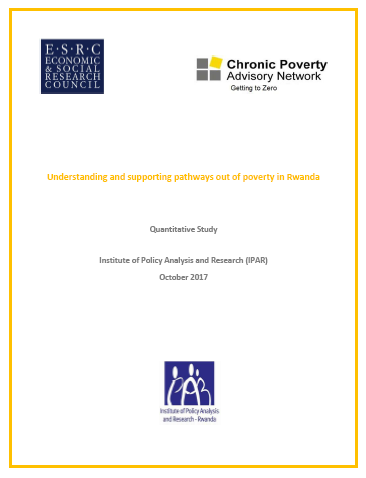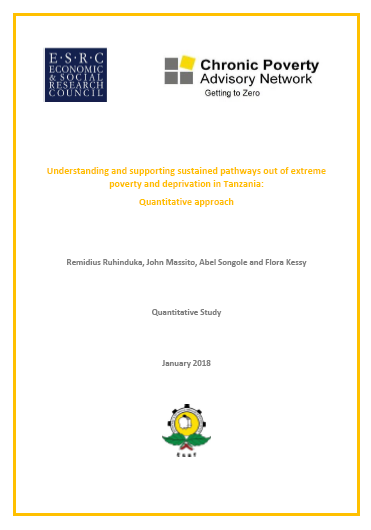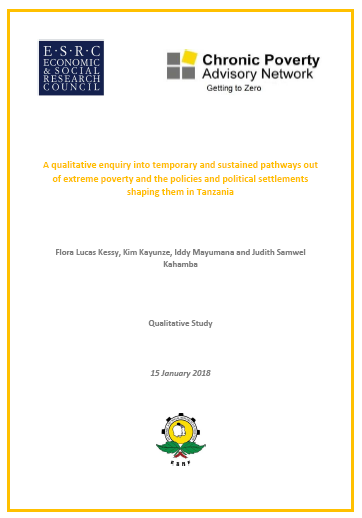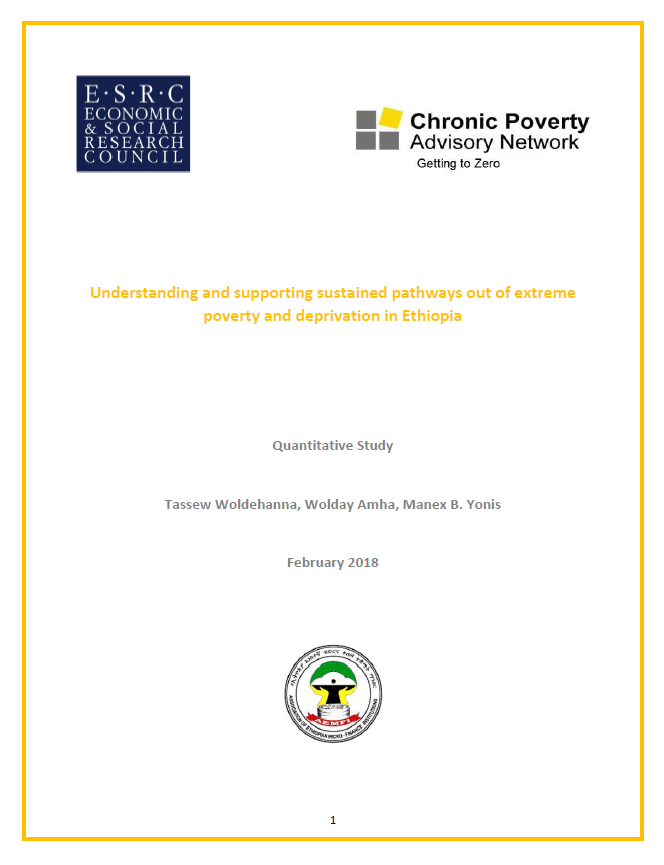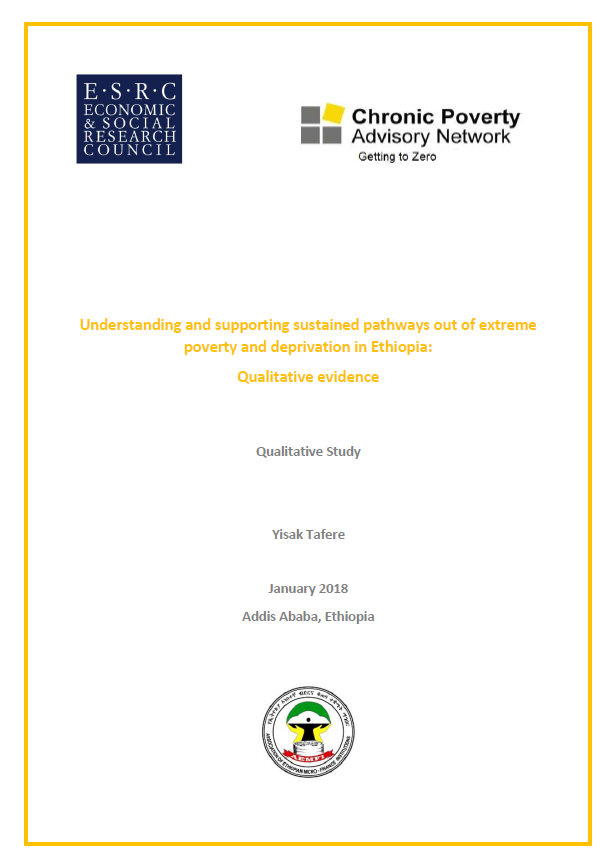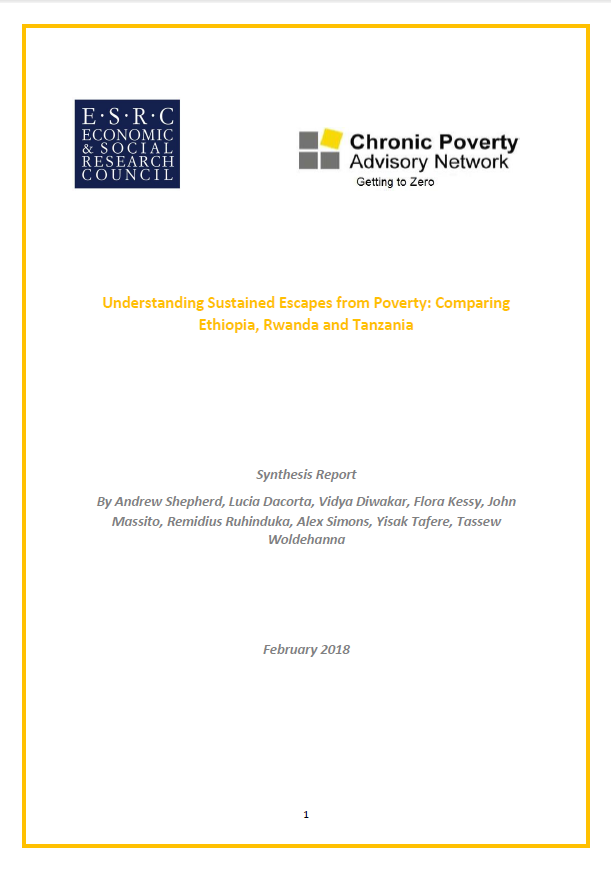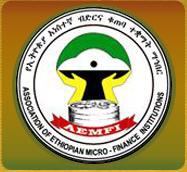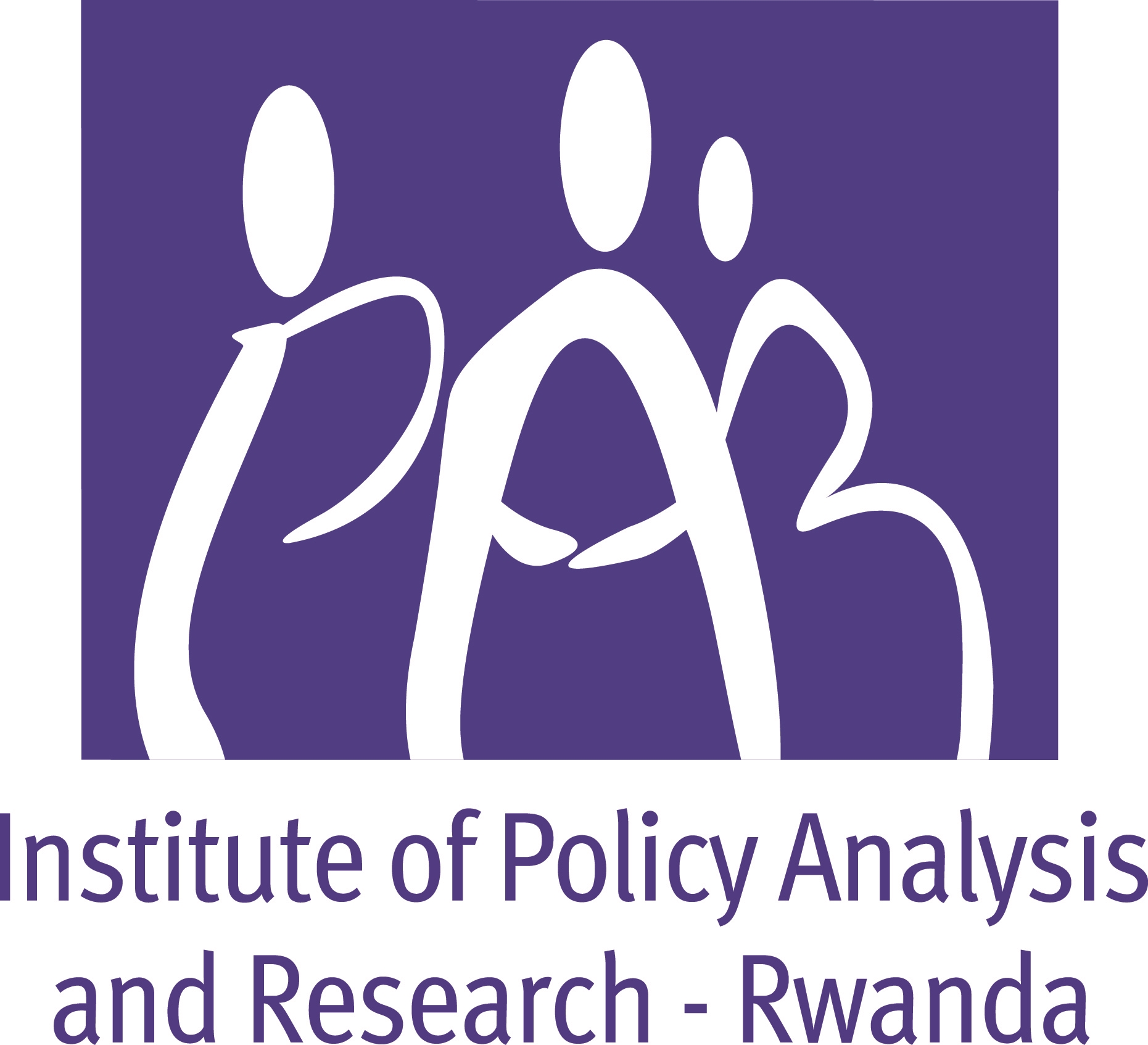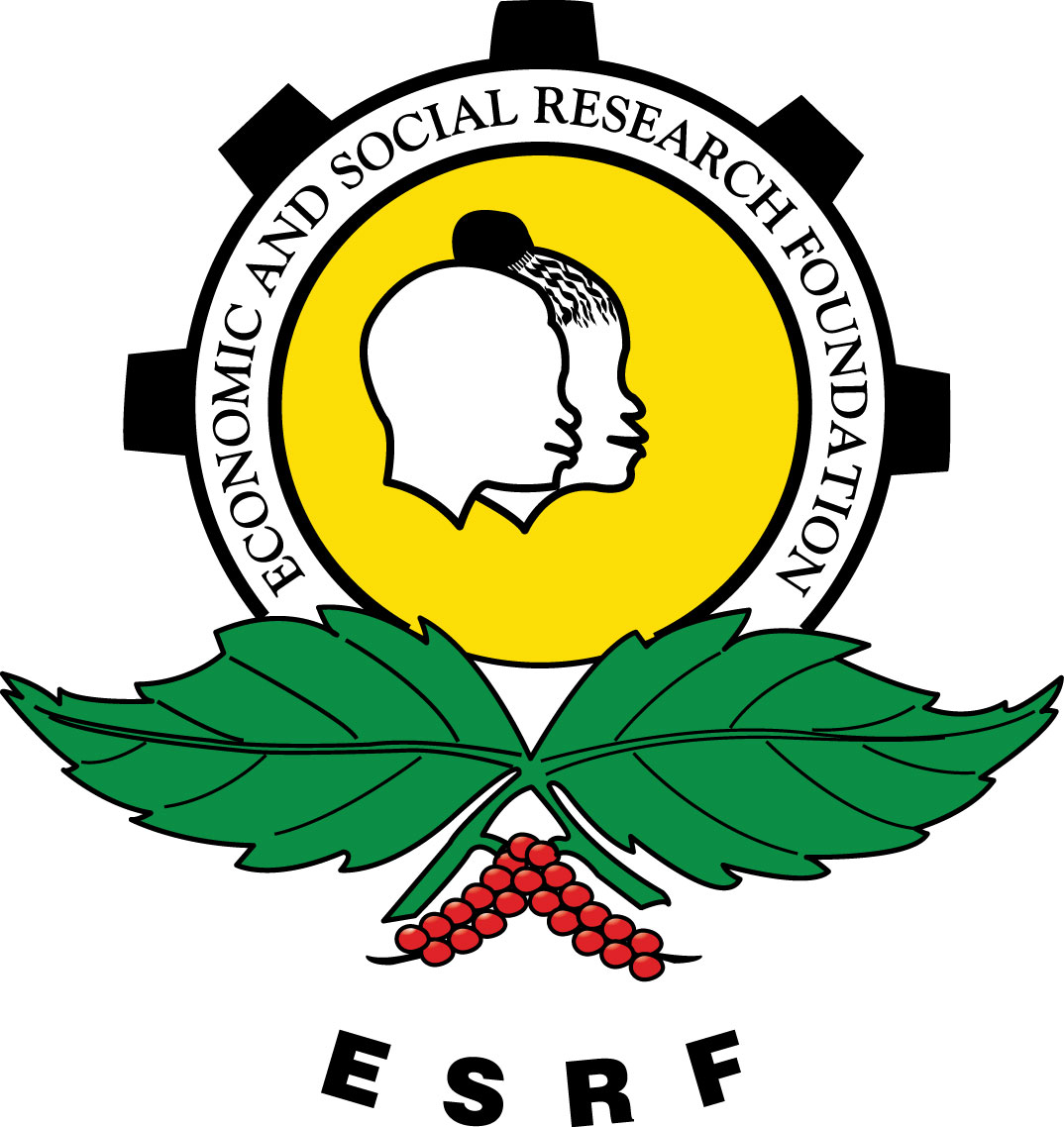If the world is to ‘Get to Zero’ extreme poverty this will require, not just ensuring that men and women currently living in poverty are able to escape it, but that new individuals do not become impoverished and that those who have escaped poverty do not once again fall below the poverty line.
There are significant variations in the sustainability of poverty escapes. The focus of this research project is investigating how pathways for sustained poverty escape differ. Specifically, the project will look at the different behaviours according to:
(a) structural inequalities or group characteristics (for instance on the basis of gender, ethnic group, age or occupation) and
(b) the type of political settlement.
The overall objective of the proposed research is to achieve a better understanding of how escapes from extreme poverty and deprivation can be sustained over time, since this is a poorly understood aspect of poverty dynamics.
Two overall questions will inform the research:
(1) ‘What factors shape pathways into and out of poverty and people’s experience of these, and how can policy create sustained routes out of extreme poverty in ways that can be replicated and scaled up?’;
(2) ‘What political and institutional conditions are associated with effective poverty reduction and development, and what can domestic and external actors do to promote these conditions?’.
The project entails 4 main phases:
Phase 1: Stakeholder mapping, Stakeholder workshop and establishing a Reference Group, First meeting of Reference Groups to identify key policies, Consortium meeting to lay-out the aims, objectives and methodological approach of the project and carry out training on fieldwork concepts and methods.
Phase 2: Analysis of panel data, Literature and policy evaluation review, Selection of sample frame for qualitative data collection, Training of life history data collection and running focus groups at the community level, Collection of life histories, local focus groups and local key informant interviews, Lessons learned workshops, Tracking of urban migrants, Qualitative data analysis
Phase 3: Analysis of Rwanda panel data, Participatory Policy, Evaluation with Reference Group, National-level political economy analysis – key informant interviews, Dissemination meetings for national reports
Phase 4: Analysis of three-wave panel data from a broader selection of sub-Saharan African countries, Launch of synthesis reports, Dissemination event in the UK, Publications, Data sharing and archiving
The project implementation started in August 2015 and ended in February 2018. You can find the project outputs in the gallery below.
In November 2015 the first phase of the project has been finalised with the holding of the Consortium Meeting in Dar Es Salaam, Tanzania, on the 23rd and 24th November. See below some pictures of the event.
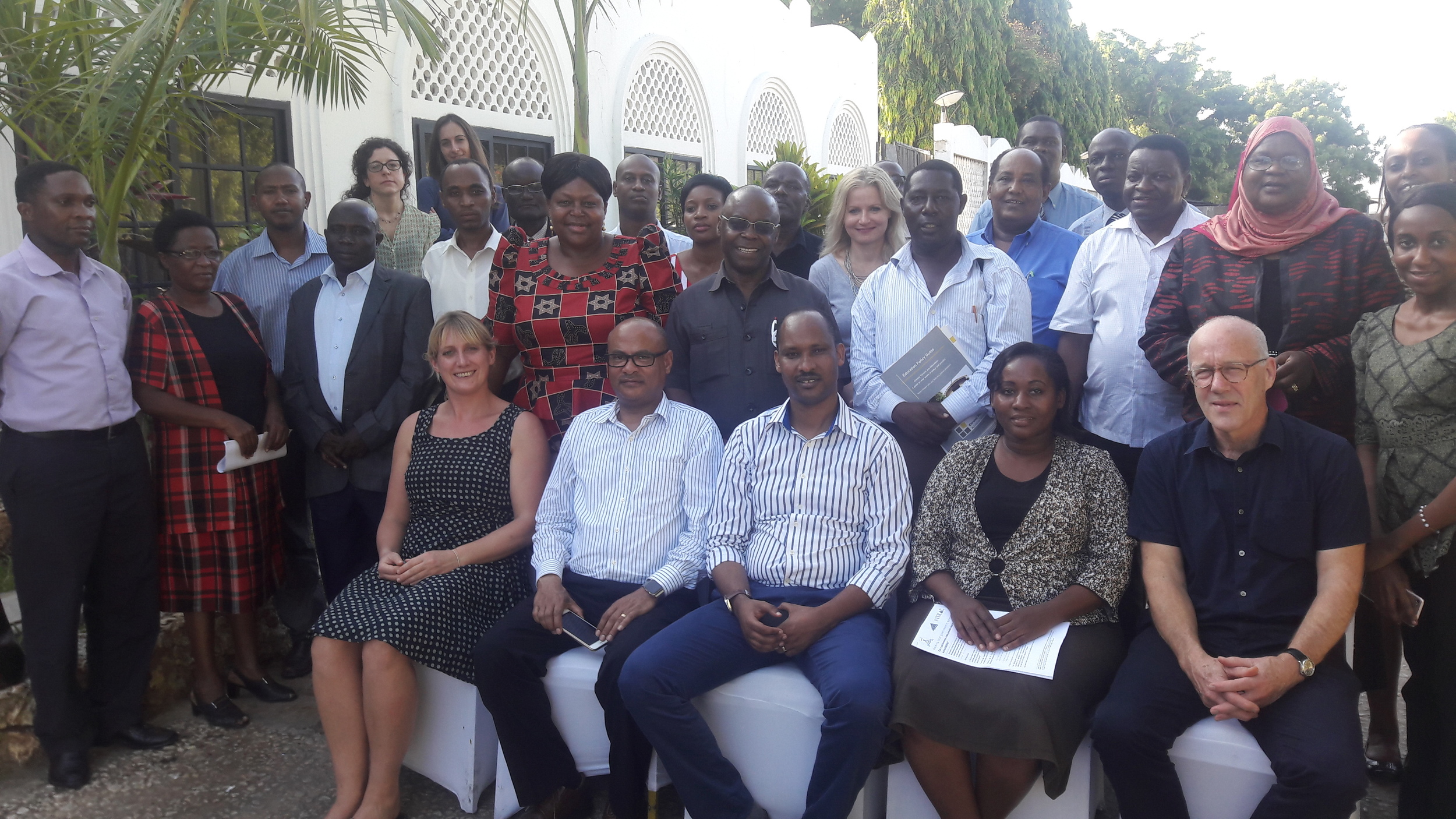
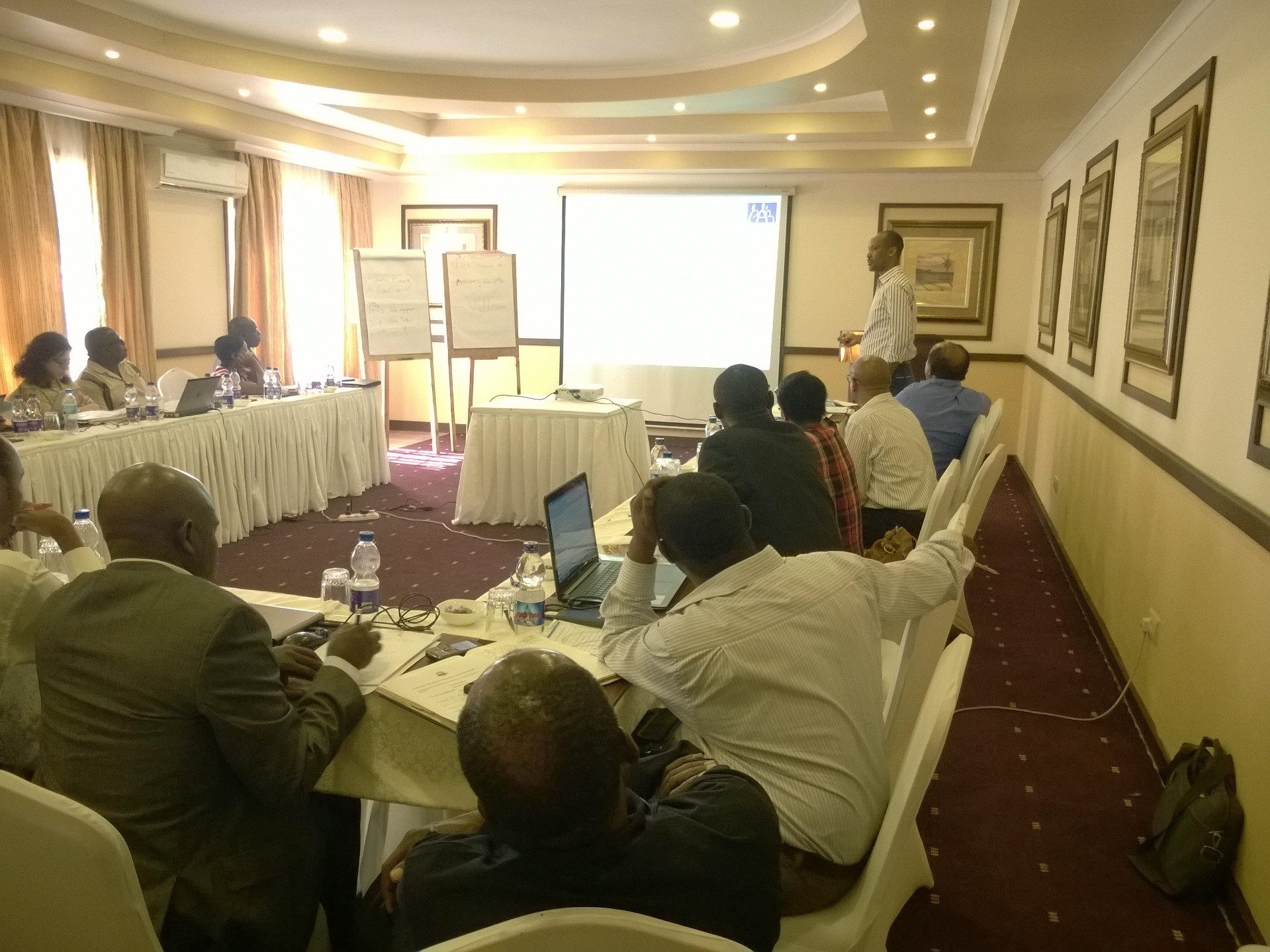
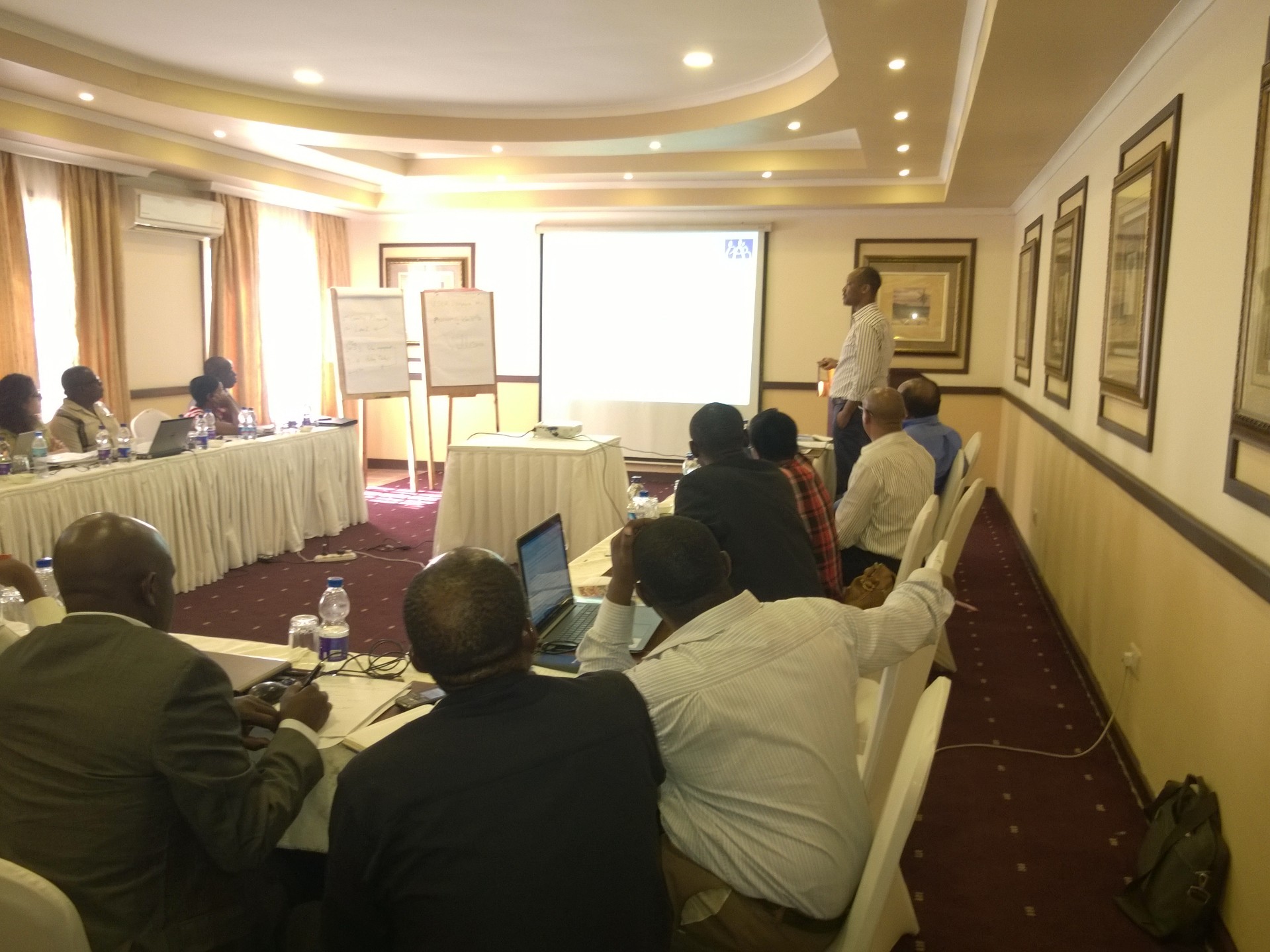
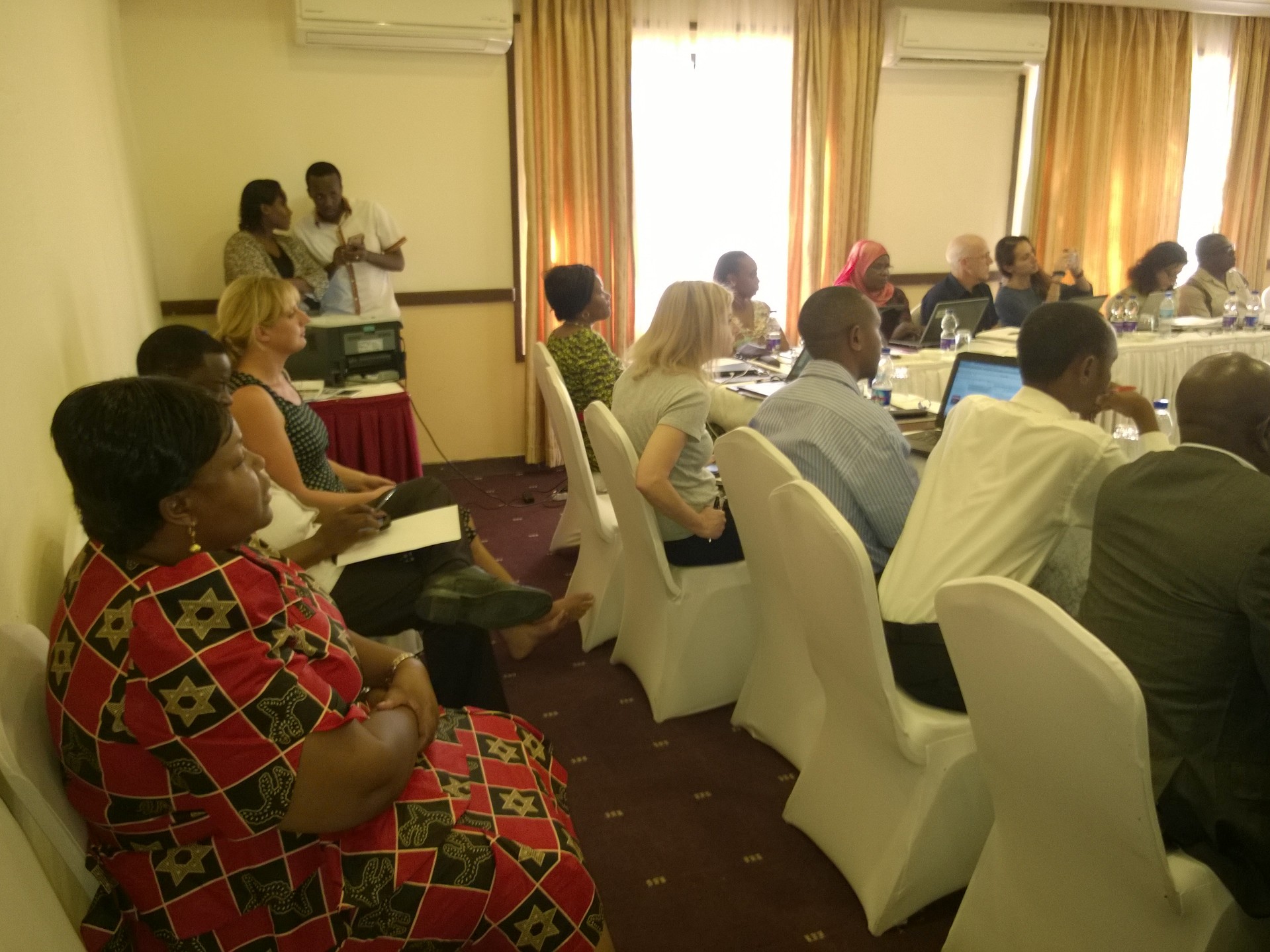
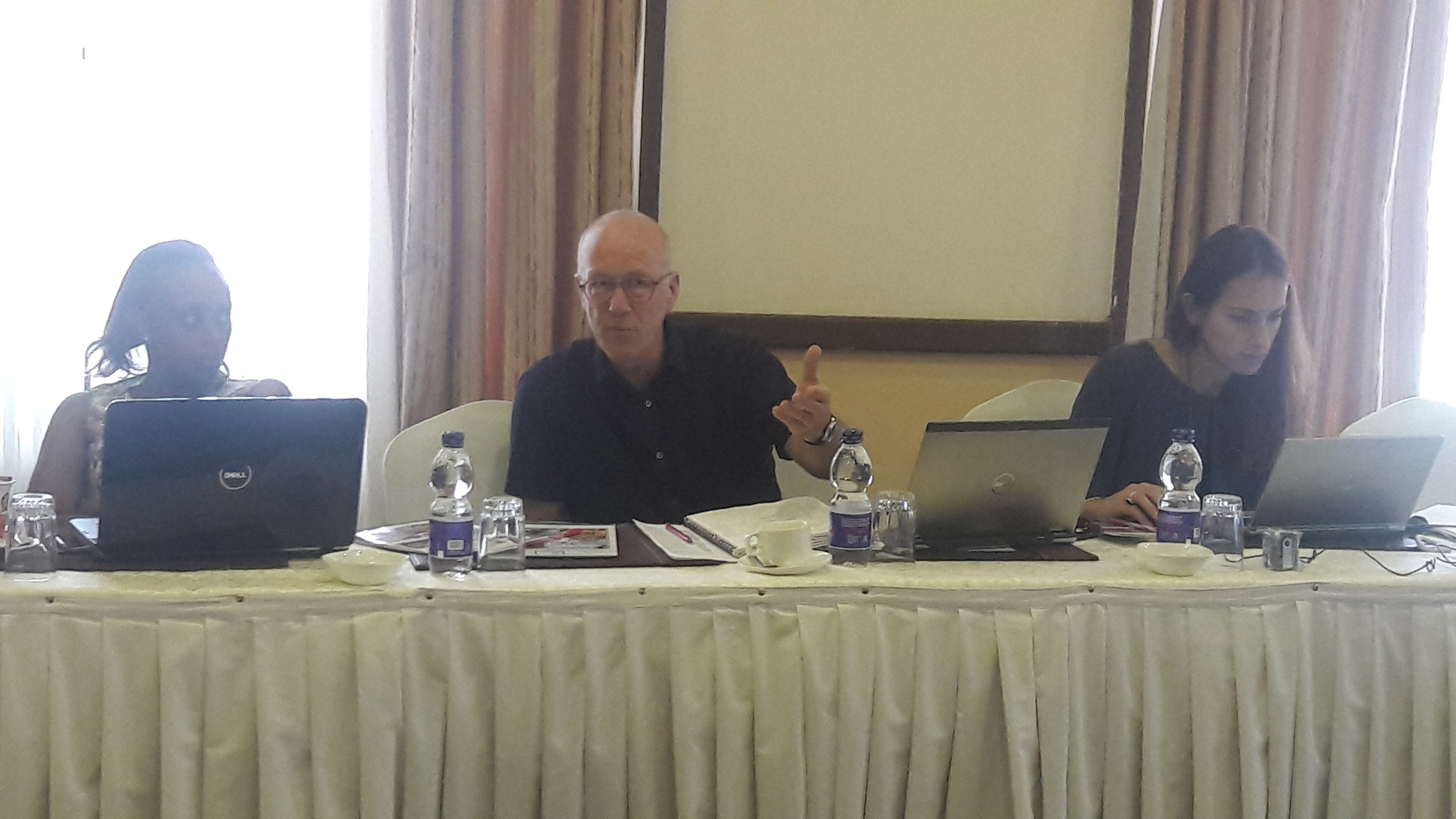
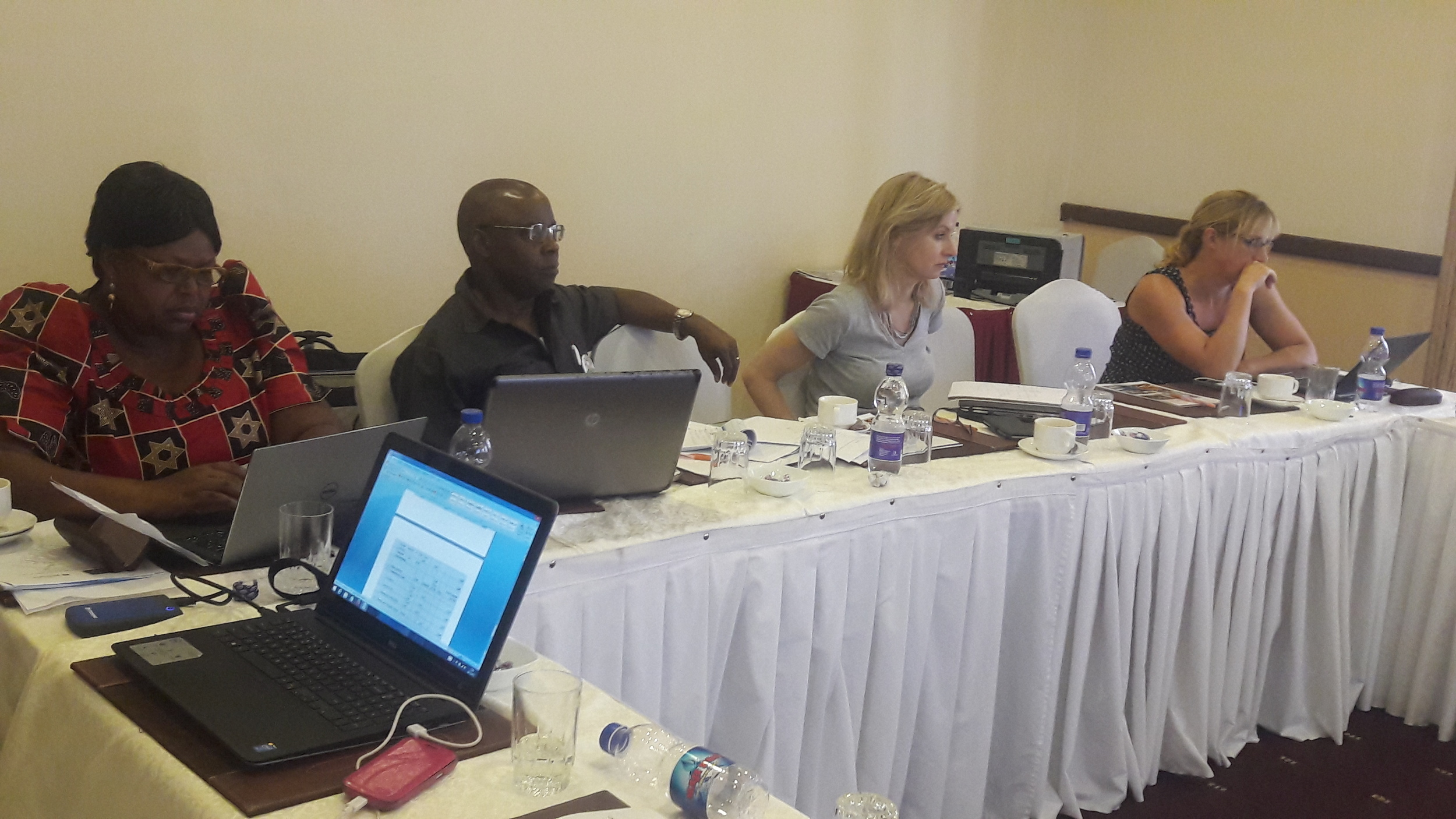
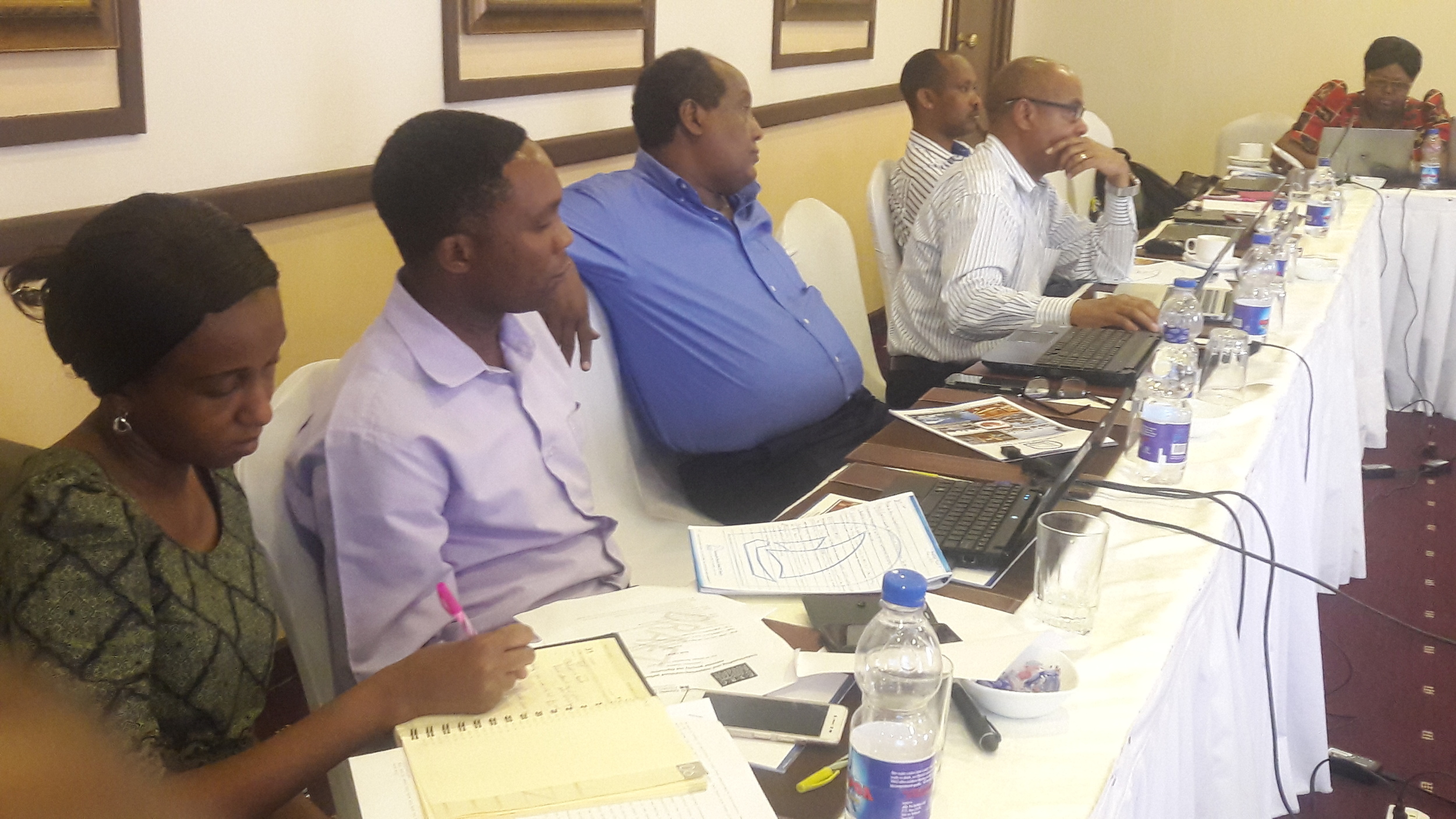
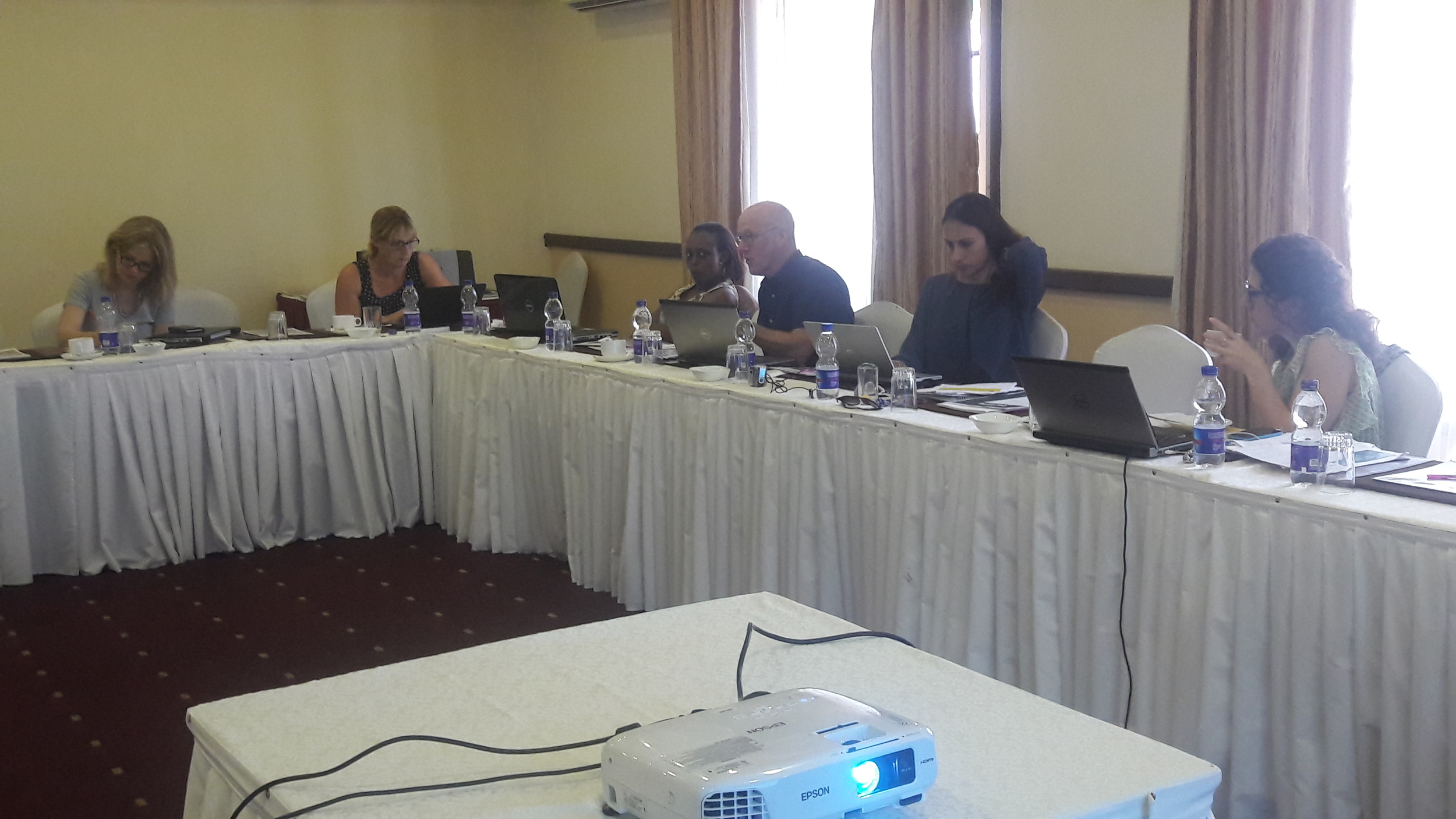
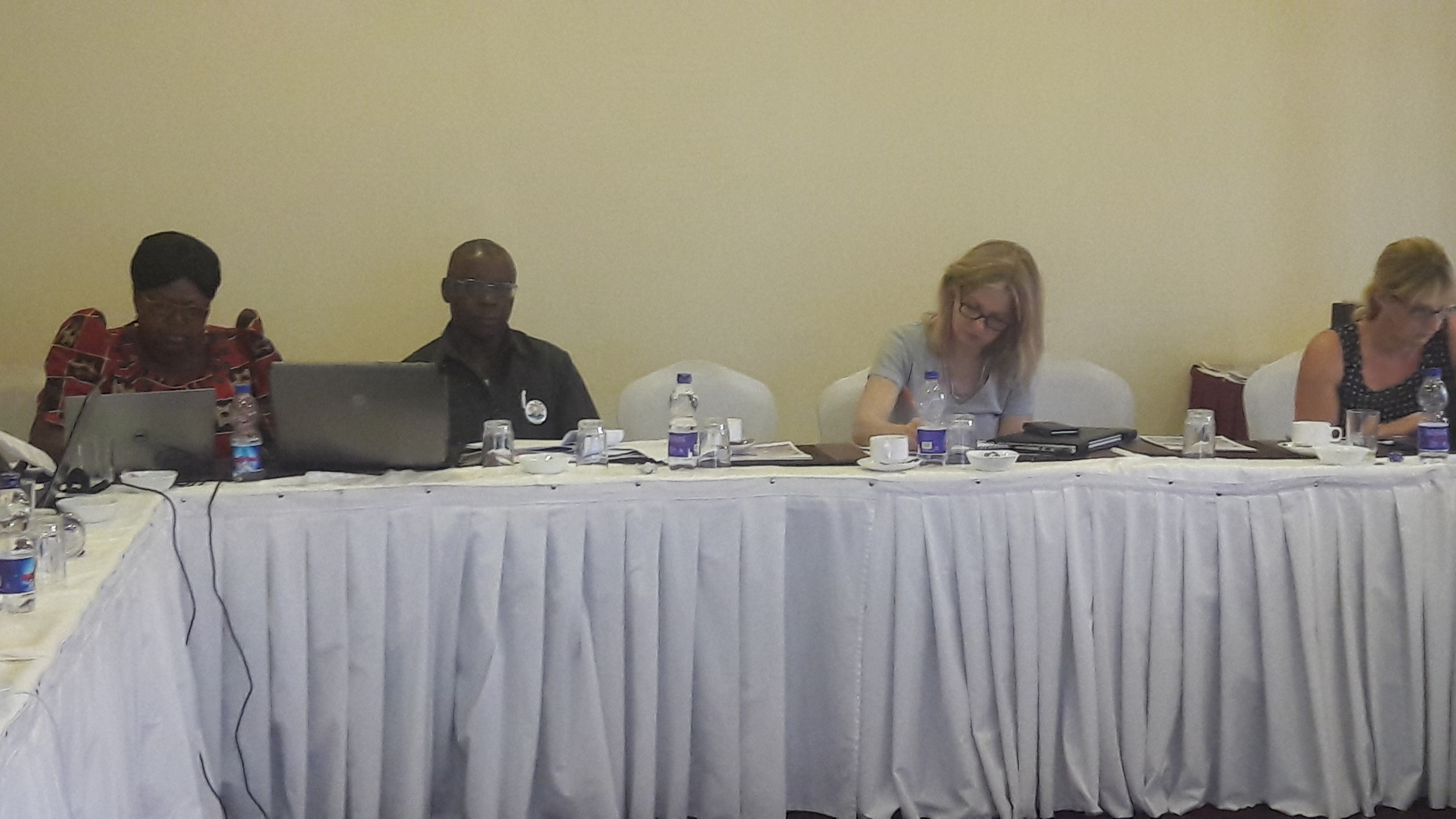
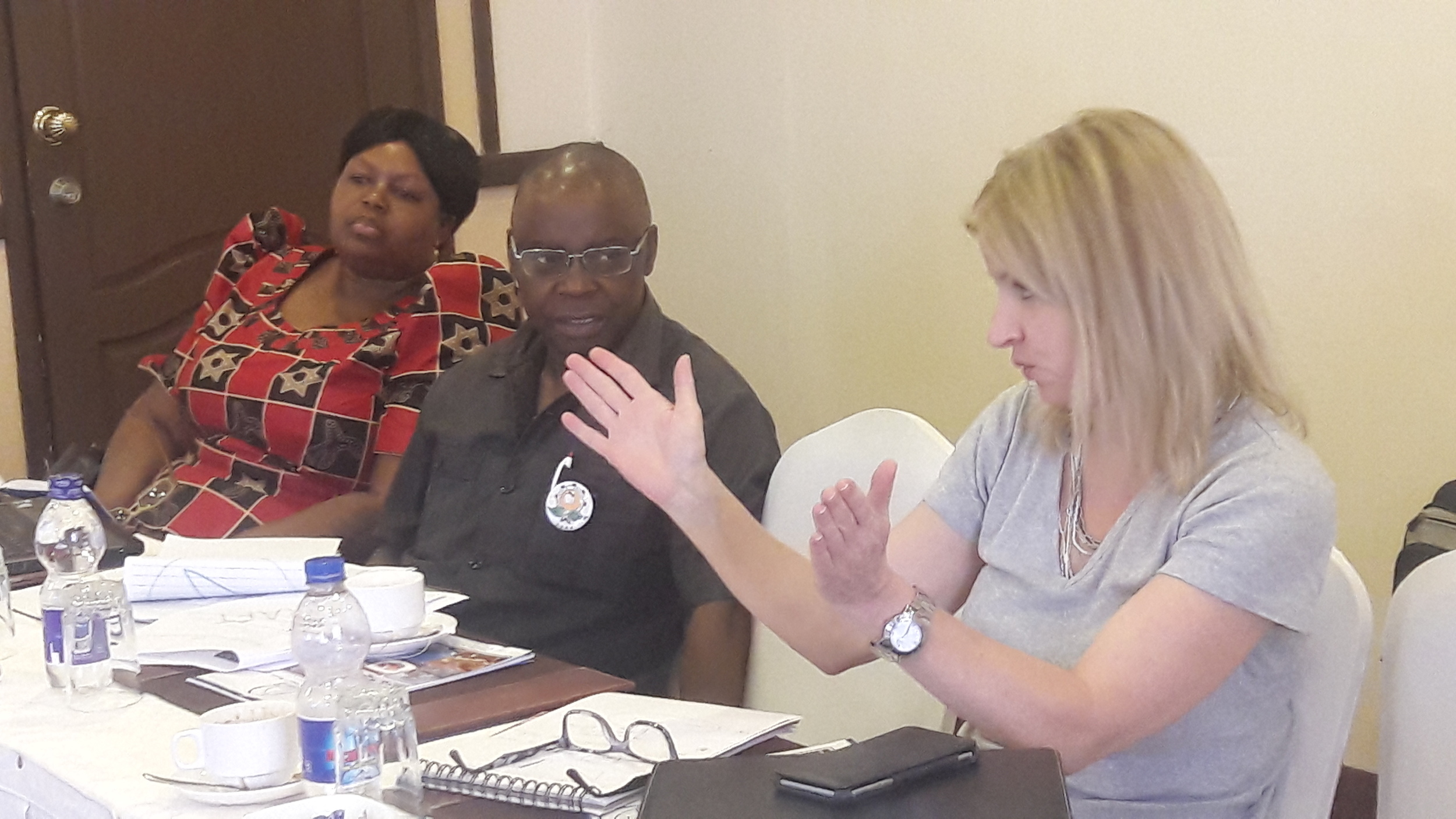
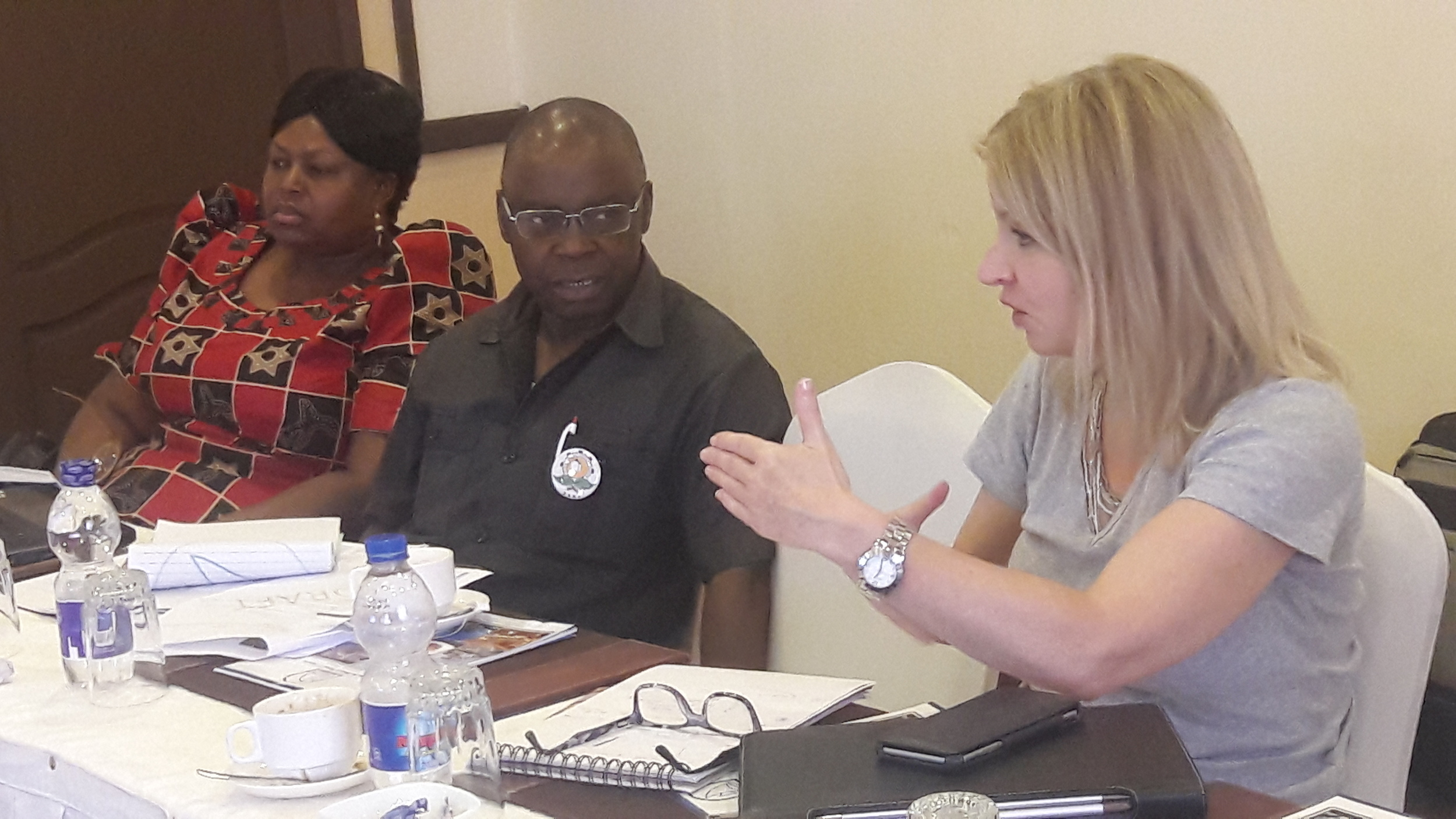
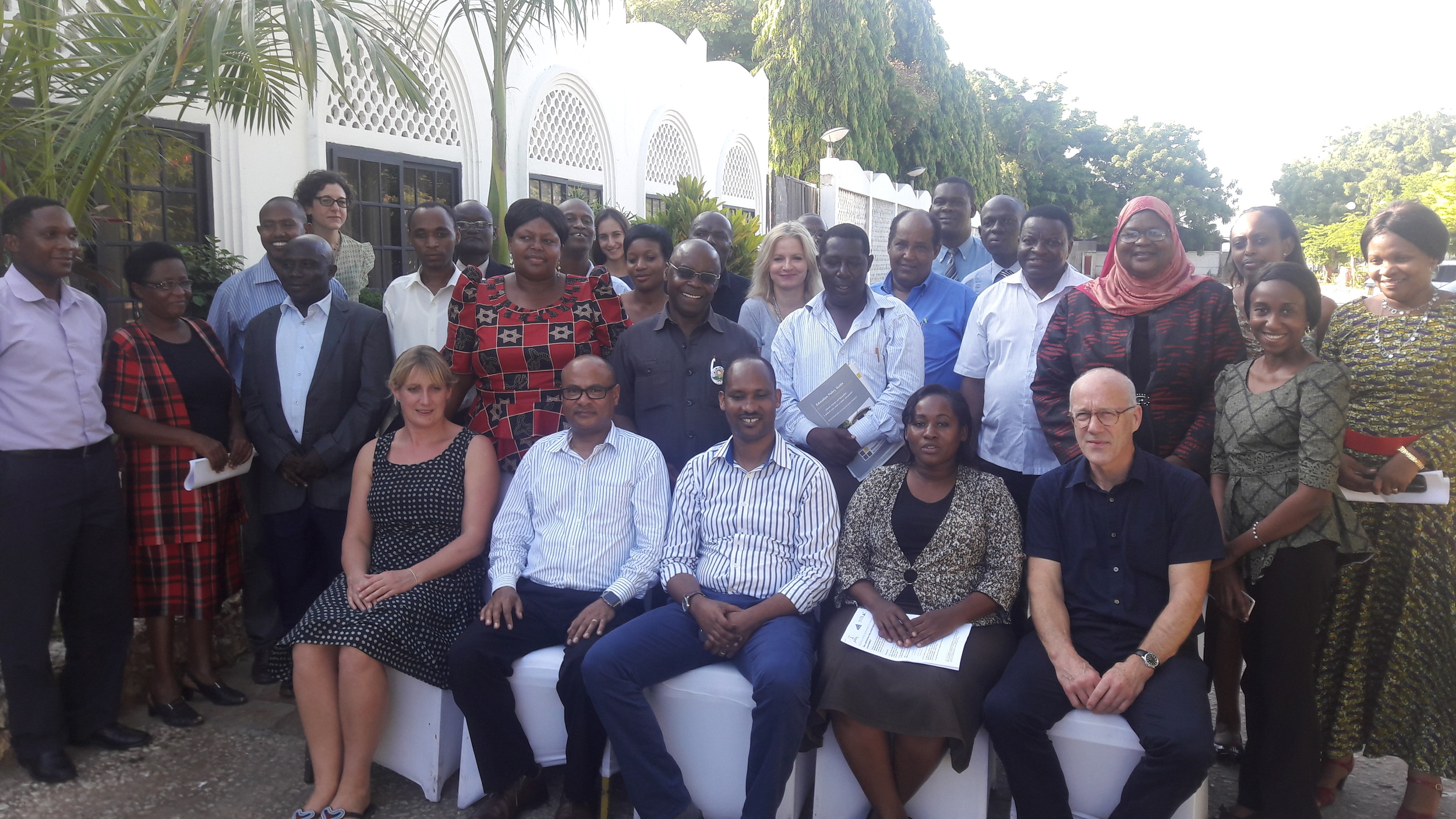
The research is specifically focused on three countries, Ethiopia, Rwanda and Tanzania. It is developed in partnership with the Economic and Social Research Foundation (Tanzania), The Association of Ethiopian Microfinance Institutions (Ethiopia) and the Institute of Policy Analysis and Research (Rwanda).
The Project is funded by the Economic and Social Research Fund (ESRC)

